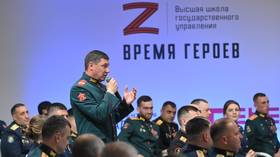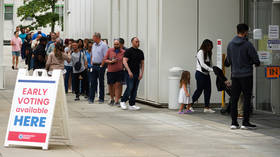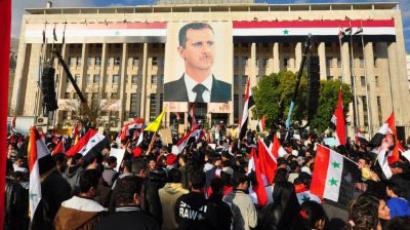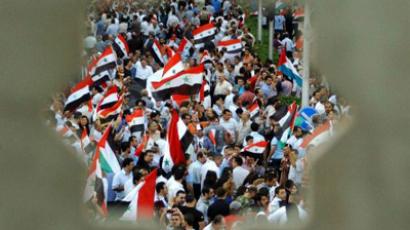Arab League calls on Hamas to bring Syria to reason
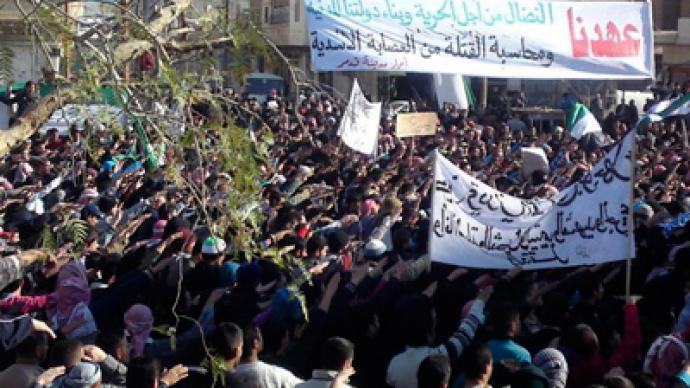
The Arab League has urged the Damascus-based leader of Hamas to ask Syria to end its bloody crackdown on opposition protests. Meanwhile, a deadly blast in Damascus provoked harsh rhetoric from Syria’s Interior Ministry.
"I gave [Khaled Meshaal] a message today, to the Syrian authorities, that it is necessary to work with integrity, transparency and credibility to halt the violence happening in Syria," said Arab League Chief Nabil Elaraby on Friday, speaking alongside the Hamas leader after a meeting in Cairo. "Since the start of the crisis we in Hamas, and myself personally, have made a huge effort to solve the crisis through a political solution, and we have kept up these efforts," replied the leader of the Palestinian group, which held Syria among its major regional allies before their relations grew strained over the popular uprising against Syrian President Bashar Al-Assad. The Arab League says more work needs to be done to halt the violence in Syria. The League sent almost a hundred monitors to Syria who, since December 28, have been observing whether Damascus is fulfilling the peace plan: ceasing bloodshed, withdrawing heavy weaponry from cities and releasing political detainees.As the mission is to hand over its first report in the Arab League’s headquarters in Cairo on Sunday, France has joined the 'Slam the Monitors' club. “We support the Arab League, which has sent observers to Syria, but the mission is not able to do its job properly at present,” said French Foreign Minister Alain Juppe on Friday, expressing his regret that Russia had vetoed UN action on Damascus. The Arab League’s mission to Syria, where according to UN estimates over 5,000 people have been killed since March 2011, has raised a wave of controversy. First heartily welcomed by the Syrian protesters, it now hears more and more calls to be withdrawn. The protesters reportedly fear that the mission, misled by the Syrian government, will fail to provide an independent report, as the country remains closed to most foreign journalists. Author and Middle East expert Tariq Ali says the monitors do not seem to be the most efficient group, but opposition groups including the Free Syrian Army will also have their reasons for calling for the mission to be recalled.“What is behind the Free Syrian Army does not want the observers to see what their side is up to,” Ali told RT from London. Still, Syria now finds itself in a situation where some opposition members are not any more interested in a peaceful resolution. “At the same time, it has to be said that the Assad regime has brought this on itself. There were multiple chances for the regime to take an initiative and have a negotiated settlement with the opposition inside the country. They have not done so, which has opened the road for these harsh maneuvers,” said Ali.
Hisham Ghassib, professor and political analyst from Princess Sumaya University in Jordan, thinks Syria faces not an internal conflict, but a geopolitical one having nothing to do with democracy and freedom.
“The geopolitical reasons are obvious: the United States is pulling out of Iraq and it wants a compensation,” he explained. “Secondly, it doesn’t want this alliance between Syria and Iran to consolidate its influence in the area.”
It is not a civil war either, Ghassib says, but rather “a conflict between the regime and the so-called opposition, which has allies all over the world – particularly in the Gulf States and in the United States and France.”


